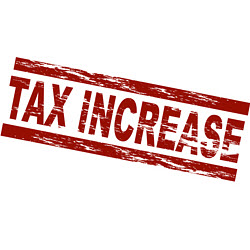 A tax break that has long been untouchable could soon be in for some serious scrutiny. Many home buyers deduct their mortgage interest when assessing their tax bill, a perk that has helped bolster the income of millions of families – and the broader housing market. But as President Obama and Congress try to hash out a deal to reduce the budget deficit, the mortgage interest deduction will likely be part of the discussion.
A tax break that has long been untouchable could soon be in for some serious scrutiny. Many home buyers deduct their mortgage interest when assessing their tax bill, a perk that has helped bolster the income of millions of families – and the broader housing market. But as President Obama and Congress try to hash out a deal to reduce the budget deficit, the mortgage interest deduction will likely be part of the discussion.
Limits on a broad array of deductions could emerge in any budget deal. It is likely that any caps would be structured to aim at high-income households, and would diminish or end the mortgage tax break for many of those taxpayers.
 On November 19, 2009 Freddie Mac recorded an average 30 year mortgage rate at 4.83%, down from 4.91% the previous week. Just over one year ago, the 30 year mortgage rate averaged 6.04%. So long as you have solid credit and a 20% down payment, whether
On November 19, 2009 Freddie Mac recorded an average 30 year mortgage rate at 4.83%, down from 4.91% the previous week. Just over one year ago, the 30 year mortgage rate averaged 6.04%. So long as you have solid credit and a 20% down payment, whether 
